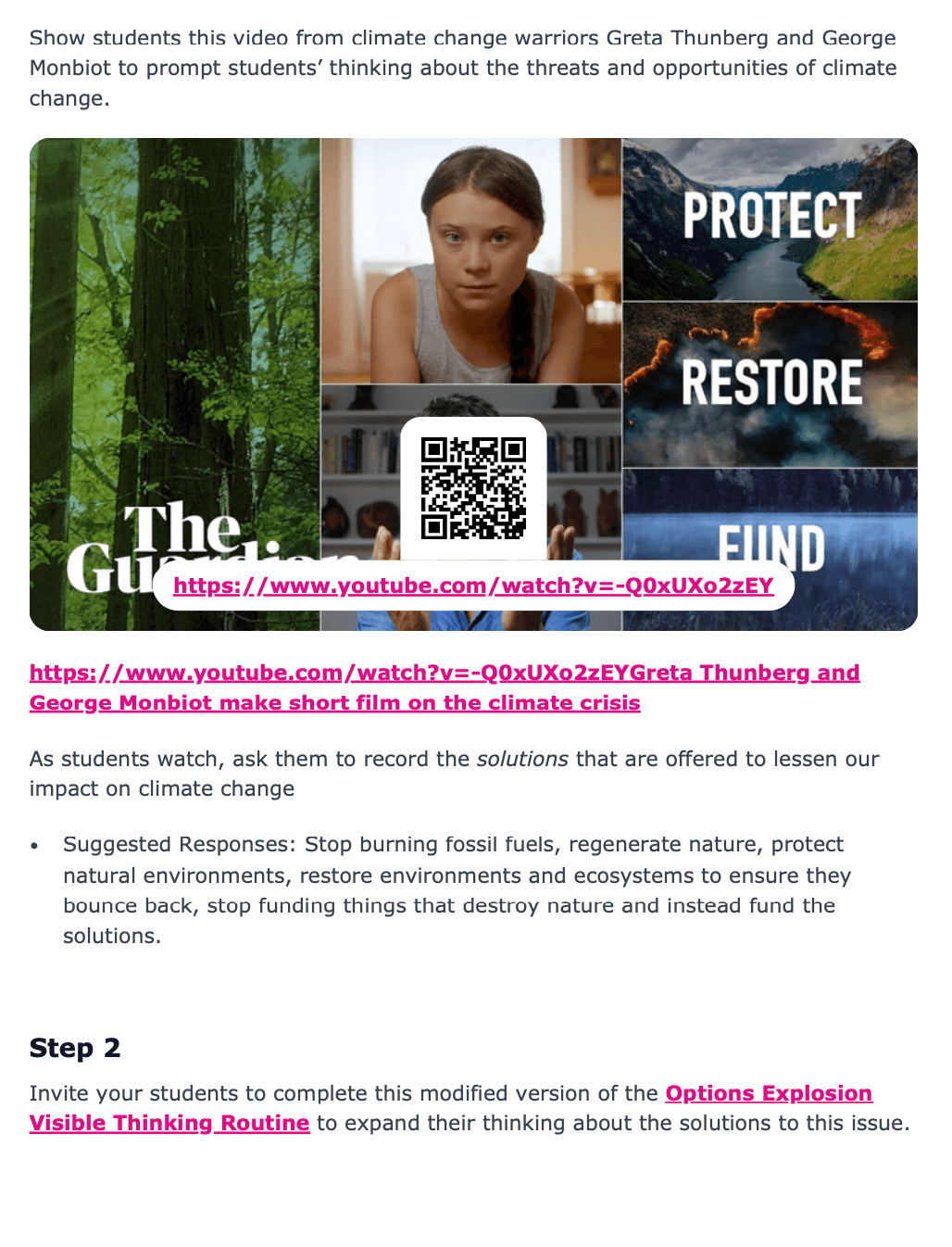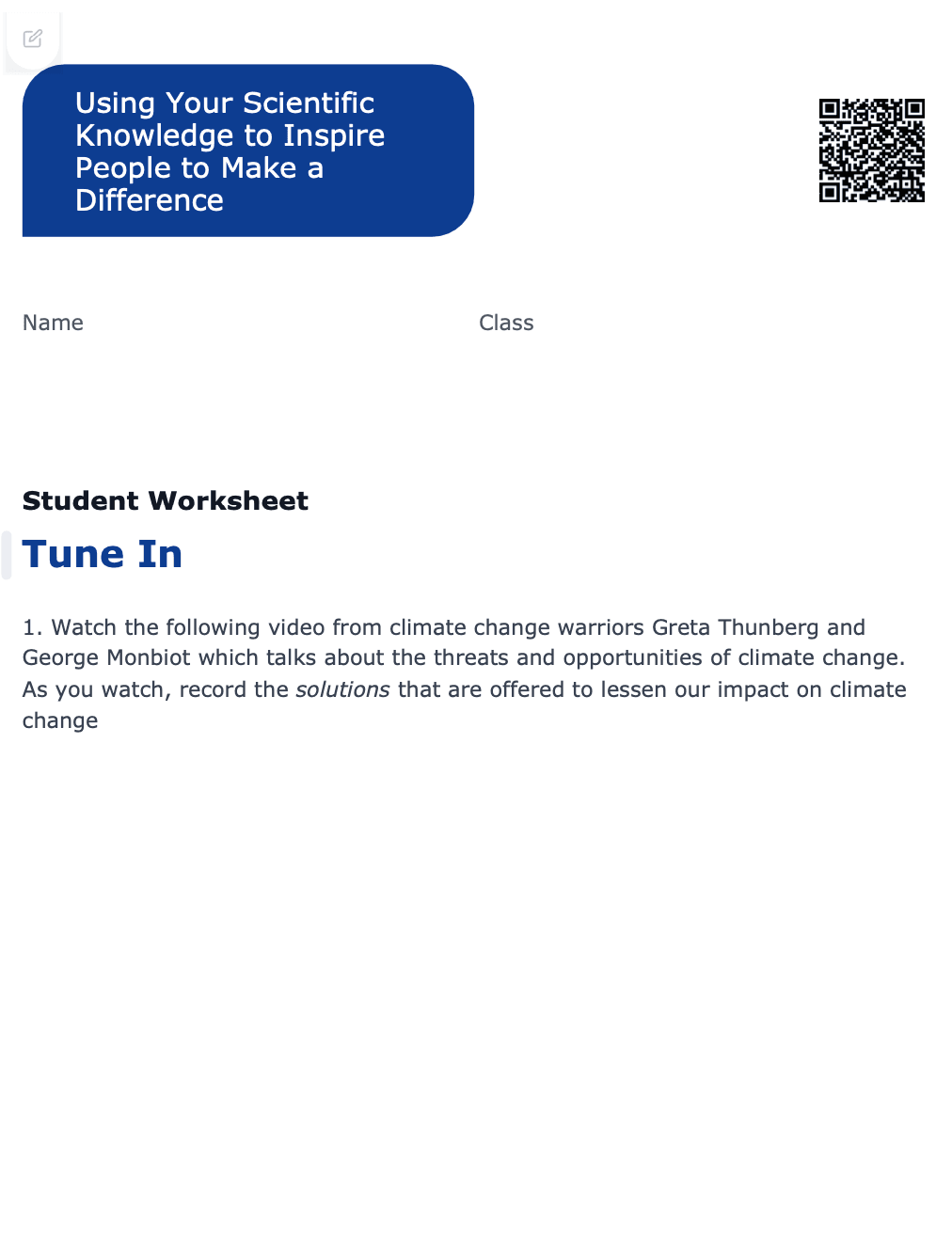
Using Your Scientific Knowledge to Inspire People to Make a Difference
Lesson11 of 11 in this unit
SecondaryYear 9SciencePhysicsEnvironmentalClimate ChangeEnergySustainabilityEconomicIndustry, Innovation and InfrastructureJob Ready
Summary
Lesson Guides and Printables
Lesson Plan

Student Worksheet

Teacher Content Info
